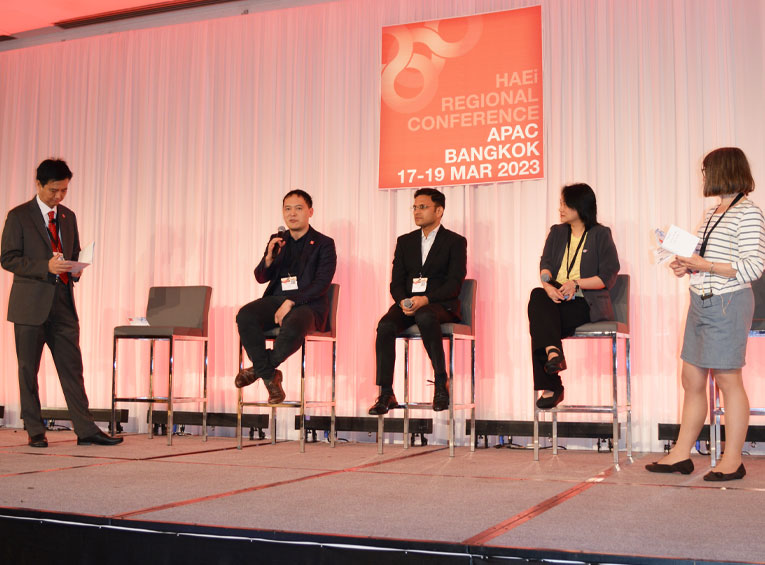This article is taken from an extensive feature on the 2023 HAEi Regional Conference APAC, published in Global Perspectives #1 2023
The next session featured an Expert Panel that answered questions posed by conference delegates. The panel included Scientific Committee Co-Chairs Dr. Hilary Longhurst (New Zealand) and Dr. Hiroshi Chantaphakul (Thailand). Dr. Ankur Jindal (India), Dr. Philip Li (Hong Kong), and Dr. Narissara Suratannon (Thailand) also participated as panel members.
Space permits mentioning only a few of the items addressed during the session.
Can newborns be tested for HAE, and is the test reliable?
The answer was that it is possible to test the C1 inhibitor levels of a newborn, but the results might not be reliable. That is because a newborn’s immune system may not be mature enough to yield valid results.
Are modern prophylaxis medicines safe?
The response pointed to the remarkable safety record of currently available modern preventive medicines. Doctors noted nothing in life is 100 percent guaranteed but expressed confidence in the safety of prophylaxis medicines currently being prescribed.
What is the best way to understand the side effects of HAE medicines?
In response, one of the doctors said, “Please talk to your doctor, don’t Google it.”
Do gene therapies being tested alter DNA to the extent that a patient’s future offspring would not be at risk for HAE?
The response was “no.” The gene therapies currently in clinical trials do not affect the mutations that cause HAE. Children of people with HAE would still have a 50-50 chance of inheriting the condition.
Find more feature articles from the 2023 HAEi Regional Conference APAC:











